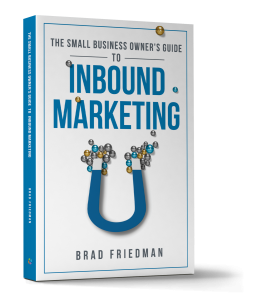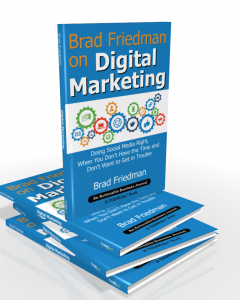
From the movie “Field of Dreams”
This Guest Post is written by Lauren Friedman, Community Genius, at Context Optional in San Francisco. Like the title infers, Lauren is a genius at social media marketing and Facebook in particular. We're very proud to publish a post of hers. If you are interested in publishing a Guest Post, please read the Guidelines on the homepage and get in touch with me. Oh, I almost forgot, Lauren also happens to be my daughter! We hope she'll write for us again in the future. So, you've decided to join the rest of the world on the quest to market via social networks. Congratulations! But you can't completely remove yourself from under a rock quite yet.
Creating a Facebook page or a Twitter account is crucial, but what really needs to happen first is planning. If you blindly enter into the social sphere, you will not succeed. So, before you even think about creating a Page or an account, come up with a plan:
Why are you creating a Facebook Page?
What are your goals in creating a Facebook Page? (ie: I want to increase sales in my store)
How will you accomplish these goals?
Why are you creating a Twitter account?
What are your goals in creating a Twitter account? (ie: I want to direct people to my website)
How will you accomplish these goals?
How will your Twitter account be different from your Facebook Page?
Once you have the answers to these questions and decide to proceed, understand that setting up the various accounts and pages on these social networks is only half the battle. Once they are set up, you have to do something with them.
A few weeks ago, I wrote an article for my company’s blog, “Out of Context.” It’s about moderation and what it means to truly manage a presence and maintain a brand image on these social networks. It’s important to follow all of the guidelines listed in this article in order to productively maintain your presence on these sites: set the standards, check in several times a day, listen and respond, and be consistent.
Here are a few tips:
Create a content calendar (I use a google spreadsheet which is great for collaboration). The calendar should be at least a week in advance, planning posts and updates so you always have something to publish. This way, nothing will fall through the cracks and you can plan big promotions, sales or events ahead of time.
Track posts/comments with regard to sentiment. If you don’t use a moderation tool (like the one Context Optional offers), you can do it yourself. Use another spreadsheet to copy down positive comments, negative comments, questions and suggestions.
Use Facebook Insights to see how many fans you are gaining/losing each day. You can correlate this information with when you post status updates.
Use Impression numbers and Feedback offered under each status update you post in order to determine what kinds of status updates generate the most responses compared to the number of impressions.
Don’t give up! Managing a social presence is not easy, but it is crucial. It will get easier with more practice, and you’ll see the results!
The photo above comes from the movie “Field of Dreams”












